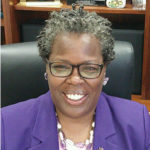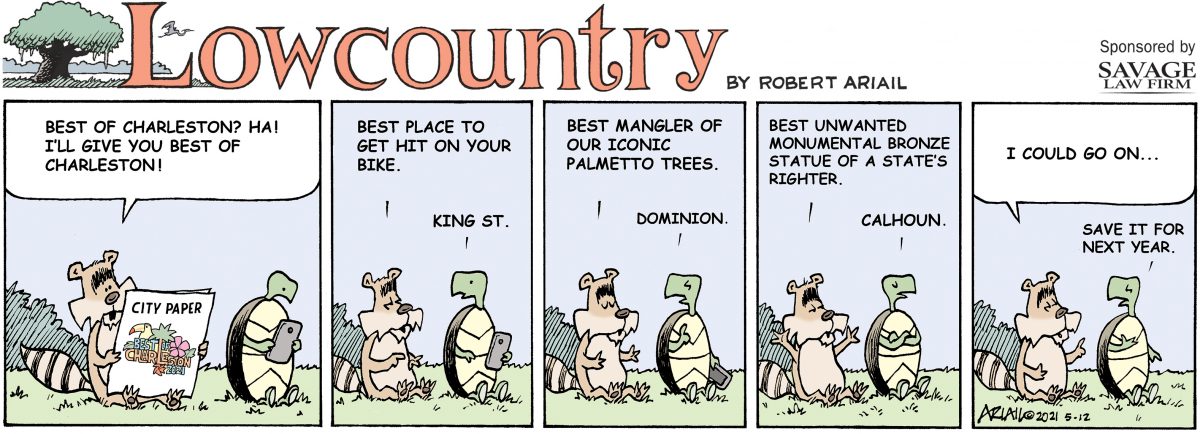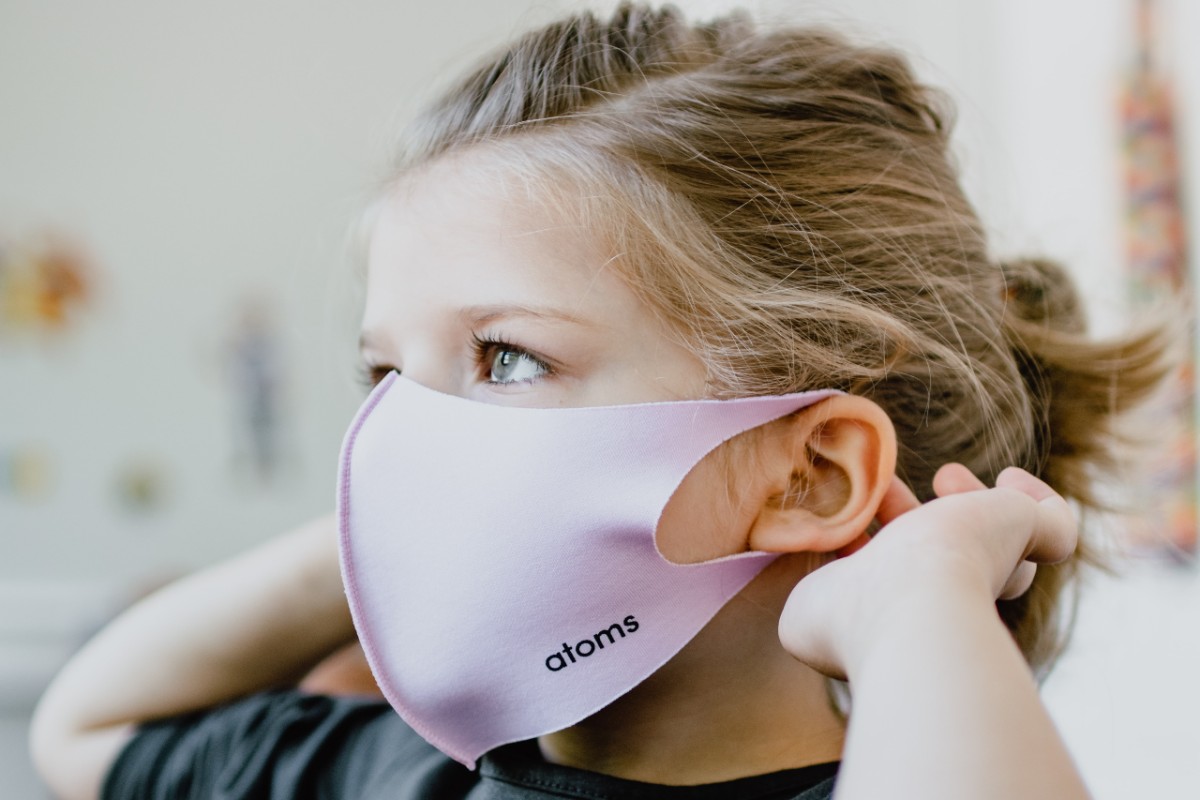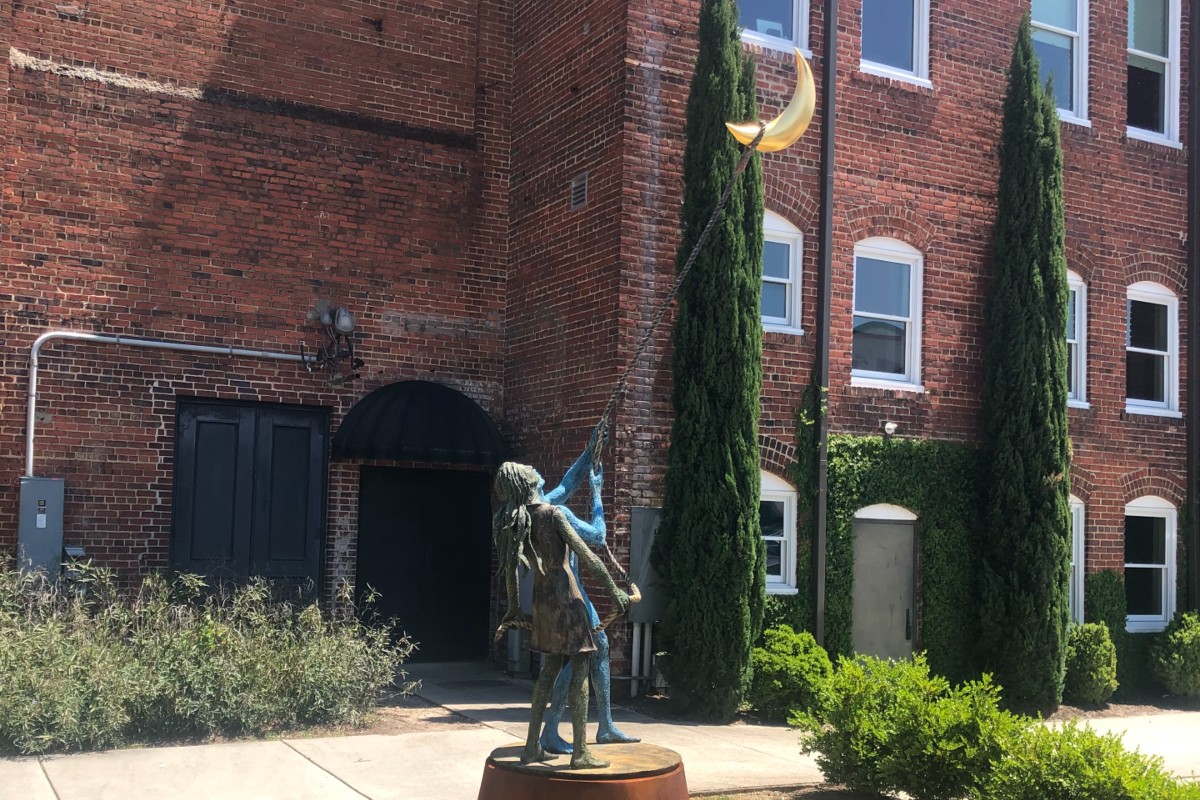STATEHOUSE REPORT | ISSUE 20.20 | MAY 14, 2021
BIG STORY: Legislative session ends with more work to do
NEWS BRIEFS: A look at news you need to know
LOWCOUNTRY, Ariail: Celebrating the Best of Charleston
COMMENTARY, Brack: Meet South Carolina’s red snowflakes
SPOTLIGHT: AT&T
MY TURN, pediatricians: Protect our children
FEEDBACK: Send us your thoughts
MYSTERY PHOTO: Moon shot
Legislative session ends with more work to do

By Andy Brack, editor and publisher | The joke around the very busy Statehouse during the last week of its regular 2021 session was there was more action down the street at the University of South Carolina where President Bob Casley resigned abruptly.
Still, there was more than enough going on in Columbia Tuesday through Thursday as lawmakers finished up regular business with a flurry of last-minute activity. And big-interest bills on hate crimes and medical marijuana already are teed up for next year.

Veteran S.C. Rep. Gilda Cobb Hunter, D-Orangeburg, said the 2021 session was a little weird because of things that were done and not finished.
“It is an embarrassment that the South Carolina Senate chose not to take action on the hate crimes bill so we remain one of the few states without a hate crimes bill. That should have passed,” she said today. “What has passed that we could have done without was the heartbeat (abortion) bill and the execution by firing squad.”
Cobb Hunter said the legislature still has more work cut out for it, particularly in making “meaningful reform of our educational system. We still have not provided adequate compensation for state employees. We still have people in South Carolina who don’t have access to quality health care and a number of other quality-of-life issues that we keep kicking the can down the road on.”
Here’s a look at what’s ahead between now and next year:
Headed to the governor
Gov. Henry McMaster is expected to sign several measures in the coming days, including high-profile legislation dealing with guns, executions, plastic and slow drivers.

Open carry. Lawmakers sent the governor a bill to allow the open carry of pistols for gun owners who gete training. The controversial measure, which won approval with compromises between House members and senators, will require gun owners to have concealed weapon permit training and background checks. South Carolina will be the 46th state to allow so-called “open carry” legislation.
Firing squads. A bipartisan measure to allow the state to use firing squads as an alternative to execute prisoners is expected to be signed into law. Currently, death row inmates have to pick between electrocution and lethal injection. But because the drug isn’t available and inmates choose it, executions have ground to a halt for a decade. The new measure sets electrocution as the default, with the firing squad as the alternative.
Slowpoke drivers. Legislators also sent McMaster a bill that would penalize slow drivers in the left lane of interstate highways. They said it was a safety measure, not a speeding measure. More.
Other measures. Some pro-conservation bills headed to McMaster focus on making solar power more accessible for state residents, extending electronic waste regulations and improving waste tire disposal rules.
Headed to conference
Next month, legislators will meet during a special session to talk about two measures: the state’s $11 billion budget and reform of the state’s utility, Santee Cooper.
Budget conference. Three lawmakers from each chamber are expected to be appointed June 8 to a compromise committee to hammer out budget differences. They’re expected to meet soon after to allow all members to vote on the budget on or after June 21. Budget vetoes are expected to be considered on June 29. The 2021-22 fiscal year starts July 1.

Santee Cooper. After lawmakers punted on selling the utility, they passed differing versions of reform measures, which sent the legislation on Santee Cooper to a conference committee. They’ll likely take up a compromise during the June session. According to John Tynan of the Conservation Voters of South Carolina, “while there are some uncertainties about the final bill, it is clear that it will include requirements for studying clean energy and coal plant retirement, approval by the Public Service Commission for energy generation plans and facilities, provisions for an equitable transition for communities and workers surrounding coal plants, considerations for diversity in board appointments and increased oversight by the Office of Regulatory Staff.”
Waiting for the fall
Legislators also will meet in special session in the fall to deal with reapportionment of S.C. House, S.C. Senate and U.S. House districts as required by the U.S. Constitution. Redistricting is late this year because data from the U.S. Census won’t be delivered until the end of September.
Lawmakers also will debate two supplemental appropriations bills in the fall — how to spend $2.1 billion in federal money from the American Rescue Act and $525 million from a Savannah River Site settlement.
Wait ‘til next year
Two of the most anticipated of the 2021 session — approval of medical marijuana to ease suffering and passage of hate crimes legislation — didn’t make it through the General Assembly’s maze this year. Both will be top-of-the-ticket items next year.
Hate crimes legislation has been important to moderates and progressives for years, but never got over the finish line. This year, the S.C. Chamber of Commerce got behind the measure and it went through the House and got to the Senate floor, only to be stalled at the last minute by nine senators.
Business leaders are encouraged and say they’ll push hard next year for final passage: ““Why in the world would we miss this golden opportunity to send a message to the rest of the world that, in fact, we are the welcoming people we know ourselves to be as we compete for talent to fill the jobs of the future that will help keep South Carolina moving forward?” S.C. Chamber President and CEO Bob Morgan asked Thursday.
Other measures on tap next year include consideration of a constitutional convention, reform to the state’s election laws, establishment of regulations for plastic pellets (nurdles), reform of the state Department of Health and Environmental Control, and family leave for state employees.
EDITOR’S NOTE: This story has been updated to correct an error: A bill on plastics did not pass this week, as originally reported. It will be on the agenda next year. We apologize for the error.
- Have a comment? Send to: feedback@statehousereport.com.
A look at news you need to know

Staff reports | Here’s a rundown of what happened in the Statehouse and around the state over the last week:
Hate crimes bill won’t become law this year, future uncertain. The South Carolina hate crimes bill was left on the Senate floor as the Legislature finished their work session for this year, leaving its future uncertain. More: The State | The Post and Courier.
![]() Open carry with permit gun bill heads to McMaster’s desk. With a stroke of a pen, Gov. Henry McMaster could spur South Carolina to become one of handful of states that allow open carry of weapons for those with training. The House and Senate passed the bill and ironed out differences this week. Under the bill, to carry openly, one must undergo concealed weapon permit training and background checks. More: AP News | The Post and Courier.
Open carry with permit gun bill heads to McMaster’s desk. With a stroke of a pen, Gov. Henry McMaster could spur South Carolina to become one of handful of states that allow open carry of weapons for those with training. The House and Senate passed the bill and ironed out differences this week. Under the bill, to carry openly, one must undergo concealed weapon permit training and background checks. More: AP News | The Post and Courier.
Bill bringing back electric chair, firing squads OK’d. The state legislature has sent a bill to Gov. Henry McMaster that, if signed, would make death by a surge of electricity as the default method of execution in the state. If a death row inmate doesn’t want to die by that method, he or she will have the choice to be shot to death by firing squad. More: AP/The Washington Post | The Post and Courier.
Plastics melting bill to head to McMaster. A bill that OK’s plastics melting as a form of recycling in South Carolina, known as pyrolysis, is likely heading to the governor for his signature. More: The Post and Courier.
South Carolina OKs constitutional convention. The S.C. House approved Tuesday a proposal that would add South Carolina to a list of states calling for a convention to propose amendments to the U.S. Constitution. More: AP News.
Caslen resigns as USC’s president. University of South Carolina President Bob Caslen has resigned his post and the board of trustees has accepted less than a week after Caslen appeared to misidentify the school as University of Southern California and plagiarized portions of his commencement speech to graduates. Harris Pastides, who served in the role before Caslen, will serve on an interim basis during a search for a replacement. More: AP News | The Daily Gamecock.
Vaccinated can stop wearing masks, CDC says. Americans who are fully vaccinated against the coronavirus may stop covering their faces or maintaining social distance in most settings, the Centers for Disease Control said Thursday. The announcement is seen as a turning point in the pandemic, but there are still places where masks are required, such as airplanes and school buses. More: The New York Times.
State to get $2.5B in pandemic relief aid. State and local governments in South Carolina are getting nearly $2.5 billion in new federal coronavirus aid. More: AP News.
S.C. elections director to resign at end of year. The executive director of the S.C. Election Commission will leave her post at the end of the year after overseeing the ballot box process for nearly two decades. More: AP News.
Celebrating the Best of Charleston

Our sister newspaper, the Charleston City Paper, celebrated the best that Charleston has to offer with a 128-page special issue this week that included a cartoon by Robert Ariail that pokes a little fun at the newspaper. Love the cartoon? Hate it? What do you think: feedback@statehousereport.com. Check out the Best of Charleston 2021.
Meet South Carolina’s red snowflakes

By Andy Brack, editor and publisher | They don’t want to be told what to do, yet they hold public office to pass laws to let their people do just about whatever they want to do.
 We want to carry guns out in the open, they say. Get the slowpokes out of the left lane on the interstate. We ain’t going to wear masks because we don’t believe in them, regardless of what your science says. We know better than you and we’ve got the power so you can go to hell.
We want to carry guns out in the open, they say. Get the slowpokes out of the left lane on the interstate. We ain’t going to wear masks because we don’t believe in them, regardless of what your science says. We know better than you and we’ve got the power so you can go to hell.
These are South Carolina’s Red Snowflakes, a politicized cadre of people loyal to former President Donald Trump. They often claim to be religious, but seem to forget most of the New Testament — the part about “loving your neighbor as yourself.” Instead, they’re seemingly tickled to be able to get to the “eye for an eye” part of the Old Testament by now allowing firing squads as a way to execute those on death row.
The leader of the whiny Red Snowflakes seems to be Gov. Henry McMaster, who like his idol Trump, has poo-pooed mask mandates throughout the pandemic and downplayed medical science. Why? To keep almighty business humming throughout the worst global pandemic in a century.
Yet almost 10,000 South Carolinians died so far. You’ve got to wonder how many wouldn’t have succumbed to coronavirus if South Carolinians, led by leaders with safety in their hearts, would have been more cautious.
Earlier this week — before the Centers for Disease Control relaxed mask recommendations for vaccinated people — McMaster issued an executive order to end mask mandates statewide, a move that sent school boards and local governments into a tizzy to figure out how to react.
The governor’s order, State Superintendent of Education Molly Spearman said, rippled chaos throughout South Carolina as officials didn’t have time to prepare. But what’s worse is because most kids in schools aren’t vaccinated, they’re now more at risk during the last month before school ends.
So what you see is McMaster, immensely sensitive to the mask-haters, trying to score political points in the ongoing culture wars in an unbridled attempt to appease his GOP base. Oh, did we mention a governor’s race is coming up — and McMaster is expected to be challenged from the right?
“McMaster is running in 2022 and wants to run on a humming economy since the pandemic started,” one observer told us. “He wants to offer himself as a smart executive weathering the pandemic and maintaining the economy that is flat out untrue. But the truth is irrelevant in politics. A humming economy campaign needs to have just the ‘crazies’ wearing masks. McMaster’s intent is to get rid of face masks using craven confusion.”
South Carolina is taking a pandemic victory lap too soon. Sure, businesses need business. But they need to remain careful so that the virus doesn’t spread.
Only 31 percent of South Carolinians are fully vaccinated, as of May 13. Only 38.3 percent have had one of two shots. That leaves six in 10 South Carolinians unvaccinated, including virtually all children under age 16.
“When the history of the pandemic in America is written,” one critic wrote us, “there will be a big chapter on the politicians like McMaster, who dithered and denied while people sickened and died from the virus—the vast majority who would have been spared if ‘leaders’ like Henry McMaster weren’t so … stubborn. Sure hope the voters remember this at the ballot box.”
Unfortunately, many won’t because they’re still falling for the Big Lie that the election was stolen from Trump and all of the little lies about the pandemic.
Keep safe. You can continue to mask up in crowded places — stores, schools and churches. And keep the masks handy because you’ll still be required to wear them on planes, trains and buses.
- Have a comment? Send to: feedback@statehousereport.com.
AT&T
 The public spiritedness of our underwriters allows us to bring Statehouse Report to you at no cost. Today’s featured underwriter is AT&T Inc.
The public spiritedness of our underwriters allows us to bring Statehouse Report to you at no cost. Today’s featured underwriter is AT&T Inc.
AT&T Inc. (NYSE:T) helps millions around the globe connect with leading entertainment, mobile, high speed Internet and voice services. We’re the world’s largest provider of pay TV. We have TV customers in the U.S. and 11 Latin American countries. We offer the best global coverage of any U.S. wireless provider*. And we help businesses worldwide serve their customers better with our mobility and highly secure cloud solutions.
- Additional information about AT&T products and services is available at http://about.att.com.
- Follow our news on Twitter at @ATT, on Facebook at http://www.facebook.com/att and YouTube at http://www.youtube.com/att.
* Global coverage claim based on offering discounted voice and data roaming; LTE roaming; voice roaming; and world-capable smartphone and tablets in more countries than any other U.S. based carrier. International service required. Coverage not available in all areas. Coverage may vary per country and be limited/restricted in some countries.
Pediatricians: Protect our children

MAY 2021 | As the elected officers of the South Carolina Chapter of the American Academy of Pediatrics (SCAAP), we are writing to express our concerns for children as the pandemic continues. Representing over 750 pediatricians statewide, we stand united with our AAP colleagues (over 67,000) nationally to speak out on behalf of the health, safety and well-being of the children and families under our care and advocacy umbrella. We take our oath of service seriously and will always “educate, advocate and agitate” for children.
Our current concerns are threefold:
There seems to be a complacency developing that children are safe from the ill effects of the COVID-19 virus. Let’s be clear—they tend to suffer less ill effects than adults but recent data shows that children are making up a growing share of new COVID-19 cases in the U.S., accounting for nearly 21 percent. Since the start of the pandemic, more than 3.63 million children have tested positive, making up about 13.6 percent of all cases. Children can still suffer severe consequences and even death, and we all worry about the long-term unforeseen consequences for childhood infections and long-term health. They deserve our protection now. Since children are not currently eligible for the vaccine, they will continue to spread the virus (and its more infectious variants) unless the adult population establishes herd immunity with overwhelming immunization. To get all children safely back in school, back in athletics, back in summer camps, and back in all of their vital social activities that they need, it is now up to the adults to get vaccinated and stop the spread. We should do no less. The vaccine is safe.
Vaccine hesitancy is a serious concern to us and our colleagues. The vaccine was developed with apparent lightning speed but in point of fact its development was based on decades of science. So, its rapid speed to market and into arms in no way reflects a disregard for safety. Its safety is really undeniable and appropriate precautions are being taken even given some recent concerns. As noted above, if we want to take care of the medical and social needs of our children, vaccine hesitancy needs to be replaced with vaccine urgency.
A movement is afoot to discourage the wearing of masks while we are still in the midst of the pandemic, have not yet achieved sufficient immunization levels, and in spite of clear evidence that masks decrease the spread of the virus. We fear that this movement puts the health and well-being of children at increased jeopardy. We still need to stop the respiratory spread until vaccine hesitancy is replaced by vaccine urgency and we have enough of the population protected. As health care professionals who wear masks all day at work and then again when we are out in public, we can attest to ease of mask-wearing and sense of pride that comes with protecting others. We think the health and safety of our children far outweighs the alleged affront to the civil liberties of others. Mask-wearing will be unnecessary in the not-too-distant future if we all just wear the masks until the public health officials give us the go-ahead.
Our children are our most precious resource and our most vulnerable citizens going forward. We must do everything we can to protect their health now to give them the best chance at a healthy tomorrow. It is the responsibility of all of us.
The opinion was authored earlier this month by the officers of the S.C. Chapter of the American Academy of Pediatrics: Drs. Robert A. Saul of Greenville, president; Elizabeth H. Mack of Charleston, vice president; Martha M. Edwards of Rock Hill, secretary-treasurer; and Kerry K. Sease of Greenillr, immediate past president.
Send us your thoughts
We love hearing from our readers and encourage you to share your opinions. But to be published, you’ve got to provide us with contact information so we can verify your letters. Letters to the editor are published weekly. We reserve the right to edit for length and clarity. Comments are limited to 250 words or less. Please include your name and contact information.
- Send your letters or comments to: feedback@statehousereport.com
Moon shot

A reader sent in this shot of a sculpture of a moon. Where and what is it? Send your guess to feedback@statehousereport.com — and remember to include your name, home city and contact information.
 Last week’s mystery, “Some maritime ting,” showed salvage operations of the Golden Ray, a container ship with hundreds of cars that capsized near St. Simons Island, Ga., in 2019.
Last week’s mystery, “Some maritime ting,” showed salvage operations of the Golden Ray, a container ship with hundreds of cars that capsized near St. Simons Island, Ga., in 2019.
Congratulations to these sleuths for figuring out the mystery: Elizabeth Jones of Columbia; Jacie Godfrey of Florence; George Graf of Palmyra, Va.; Allan Peel of San Antonio, Texas; Wayne Beam of Clemson; Henry Eldridge of Tega Cay; and Deb Campeau.
Peel shared this about the ship: “The Golden Ray was a 660-ft long cargo ship that capsized on Sept. 8, 2019 in St. Simons Sound. The ship was carrying 4,200 vehicles and started to list just 23-minutes after departing the dock at Port of Brunswick’s harbor, while en-route towards the Port of Baltimore. Although four of the 23 crewmen were initially reported as missing, a rescue mission eventually found them and, thankfully, none of the 23 crewmen, three engineers or marine pilot were injured during the accident. Valued at nearly $80-million, with an additional $80 million worth of cars onboard, the ship and its cargo were declared a total loss in October 2019 and salvage operations began in December 2019.”
- Send us a mystery. If you have a photo that you believe will stump readers, send it along (but make sure to tell us what it is because it may stump us too!) Send to: feedback@statehousereport.com and mark it as a photo submission. Thanks.
ORDER NOW: Copies are in Lowcountry-area bookstores now, but if you can’t swing by, you can order a copy online today.
ABOUT STATEHOUSE REPORT
Statehouse Report, founded in 2001 as a weekly legislative forecast that informs readers about what is going to happen in South Carolina politics and policy, is provided to you at no charge every Friday.
Meet our team
- Editor and publisher: Andy Brack, 843.670.3996
- Special correspondent: Lindsay Street
Donate today
We’re proud to offer Statehouse Report for free. For more than a dozen years, we’ve been the go-to place for insightful independent policy and political news and views in the Palmetto State. And we love it as much as you do.
But now, we can use your help. If you’ve been thinking of contributing to Statehouse Report over the years, now would be a great time to contribute as we deal with the crisis. In advance, thank you.
Buy the book
Now you can get a copy of editor and publisher Andy Brack’s We Can Do Better, South Carolina! ($14.99) as a paperback or as a Kindle book ($7.99). . The book of essays offers incisive commentaries by editor and publisher Andy Brack on the American South, the common good, vexing problems for the Palmetto State and interesting South Carolina leaders.
More
- Mailing address: Send inquiries by mail to: P.O. Box 21942, Charleston, SC 29413
- Subscriptions are free: Click to subscribe.
- We hope you’ll keep receiving the great news and information from Statehouse Report, but if you need to unsubscribe, go to the bottom of the weekly email issue and follow the instructions.
- Read our sister publications: Charleston City Paper (every Wednesday) | Charleston Currents (every Monday).
- © 2021, Statehouse Report, a publication of City Paper Publishing, LLC. All rights reserved.



